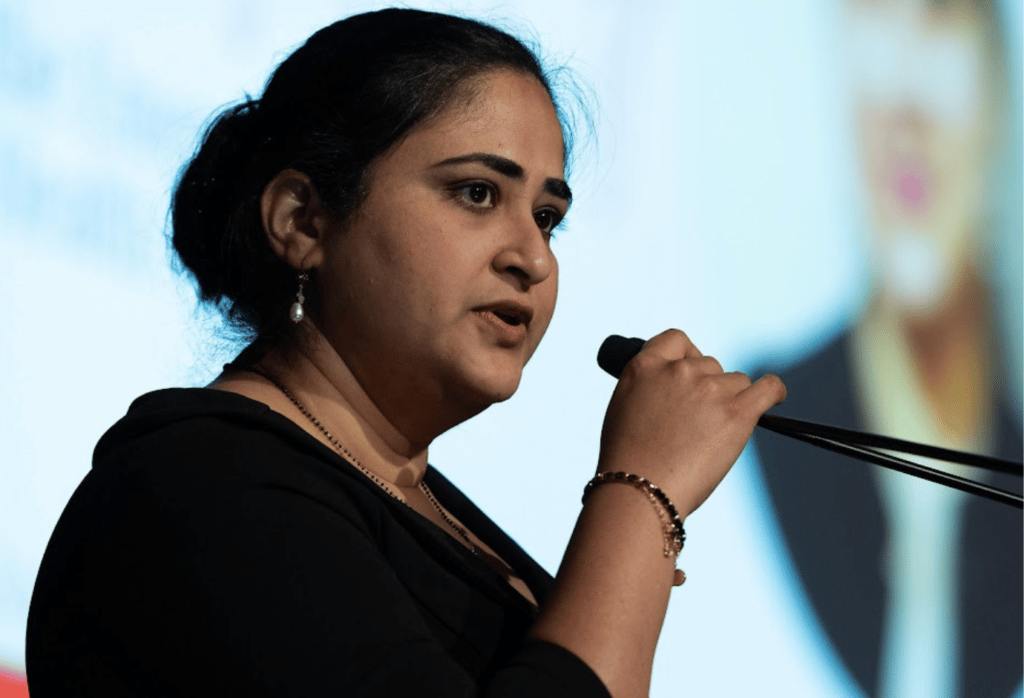A few years ago, Dr Manasi Murthy Mittinty survived a shocking accident that caused third-degree burns across a large part of her body.
With severe injuries, Dr Mittinity went on to overcome some of the significant challenges burns victims face, including learning to walk again, and using her fingers without pain.
The long recovery process piqued her interest to understand why her experience of pain varied daily, which prompted her to study medicine, followed by a PhD in pain management.
What she knows from experience and from her career is that pain goes far beyond the survivor.
“Pain not only affects the victim but also their families,” Dr Mittinity told Women’s Agenda.
“The impact of chronic pain on families, particularly on the primary caregiver who could be a parent, partners, spouse, friend, is substantial.”
Now, Dr Mittinity’s work is starting powerful conversations around sex, gender, religion and racial inclusivity for enhancing patient care and supporting people to manage pain.
The Sydney University physician scientist won the Emerging Leader in Health at the Women’s Agenda Leadership Awards in September and shared an acceptance speech highlighting her work to empower patients and their families to live a meaningful life despite the pain.
“One in five Australians will live with chronic pain, which means either each one of us or a loved one, will experience chronic health,” she said. “Mental health is a significant risk factor for that, so I urge you to look up all the research that all comes out and talk about it more. Work towards lowering the stigma. It’s also high time that we look at Indigenous pain and try to bring equality in that space.”
Dr Mittinty is currently undergoing an advanced clinical research fellowship with Harvard Medical School and believes there’s now more awareness of the critical role “social support” plays in health and illness.
“My research focuses on developing programs that help patients and their families thrive, despite their ongoing experience pain,” she explained. “Integrating mental health relationship and social support as clinical parameters of wellbeing will help to take away the focus from illness to wellbeing.”
Earlier this month, her contribution as a Chief Investigator on the team behind A3BC for Kids received almost 2.5 million in funding under the Australian Government’s Medical Research Future Fund.
The program is a national project that aims to improve health outcomes for children with juvenile idiopathic arthritis.
Dr Mittinty says winning the Leadership Awards was a gratifying experience, alongside the increased recognition her work is experiencing.
“The award is recognition of my work on achieving mental health equity for people and families who are challenged on a daily basis by chronic pain and my benchmark research in creating more culturally sensitive pain assessment for First Nations people,” she said.
“As a person of colour and a pain survivor, I have firsthand experience of suffering pain, anxiety and discrimination at the same time. It is really important that we acknowledge complexities of chronic condition management and not try to simplify them.”
In her field of pain management research, Dr Mittinty says that sex and gender are important determinants of health disparity.
“While gender is assigned by the society and culture, when individuals assigned a specific gender role do not fit the norms, they face discrimination, social exclusion and stigma,” she said. “This has shown to adversely affect their health outcomes, including pain.”
There is also the issue of the continuing lack of distinction between sex and gender – a problem that means research providing evidence on “women” are often referring to “sex”.
“Gender norms influence not only experience how one experiences pain but also their choice of health behaviours, and coping,” Dr Mittinty explained.
Looking towards the future, Dr Mittinty hopes patients will fair better with individualised patient care programs that are based on research that report on sex as well as gender.
“Science functions in sync with societal structures and social processes is good reflection of the society in time,” she said. “Inclusivity and diversity which are important social goals in this decade should also be reflected in the science we conduct.”
“A sex-informed and gender-informed perspective will not only increase rigour, promote discovery, and expand knowledge base, but is central for improving patient care aligning with our changing societal and family structures.”


